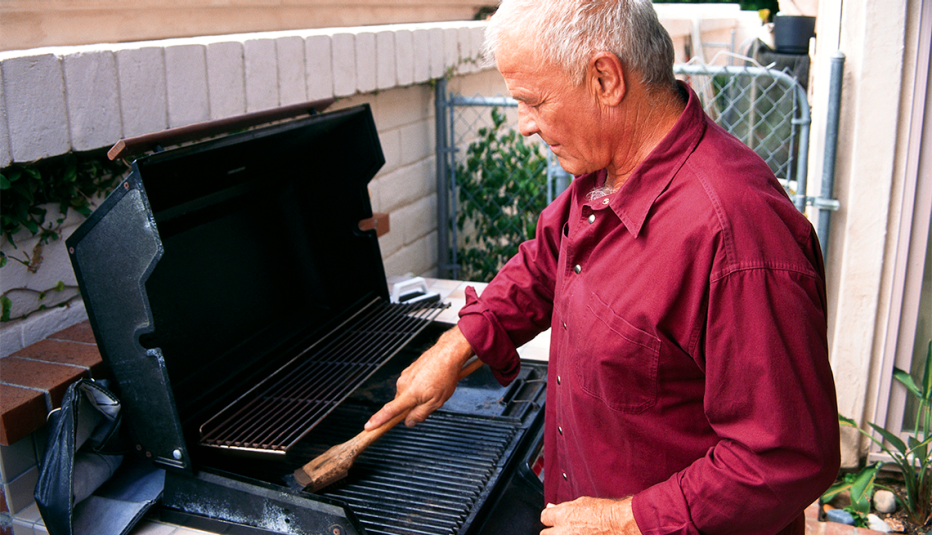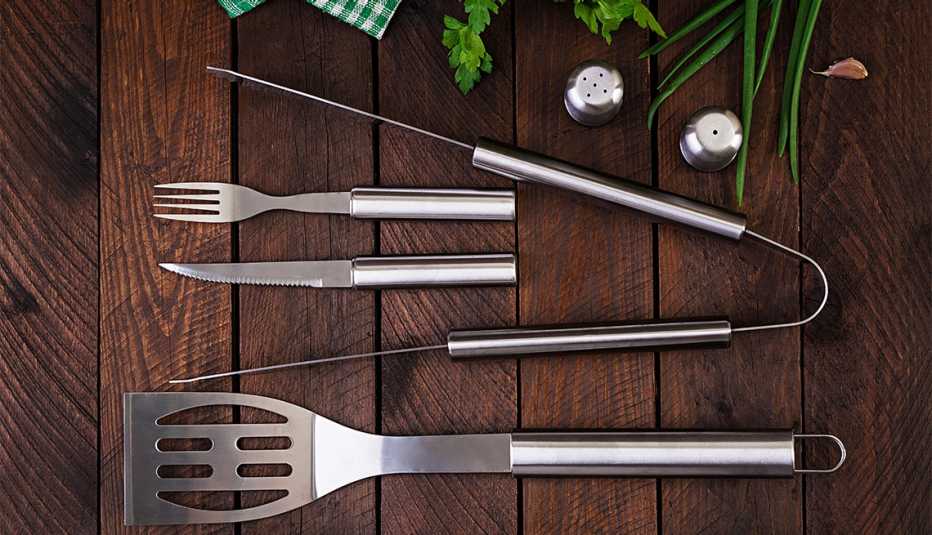Staying Fit


As the weather warms up and people spend more time gathering outdoors, it’s time for grilling.
But before you throw your meat or veggies on the fire, take some time to optimize your grill for the season. Just like anything that hasn’t been used in a while, the equipment you rely on to create sizzling outdoor meals could benefit from a good tune-up. Whether you’re a gas or charcoal griller or prefer your meat on a smoker, two pitmasters share their tips on how to keep your grill in tip-top shape all season long.


AARP Membership— $12 for your first year when you sign up for Automatic Renewal
Get instant access to members-only products and hundreds of discounts, a free second membership, and a subscription to AARP the Magazine.
1. Deep clean the grates
Make sure you’re starting the season with a clean surface for grilling. Taking the time to do a proper cleaning in the beginning will go a long way, wiping away the grime that may have built up if you left your grill dormant most of the winter. A clean surface will make your food taste better. Rob Serritella, founder and pitmaster at Los Angeles’ Holy Cow BBQ, has a whole process for cleaning the grill.
To start, if you have a gas grill, make sure the gas is off.
Remove your grill grates (if you can) and place them on a surface for cleaning. If your model doesn’t have removable grates, it likely has a tray underneath to catch debris that is removable and cleanable. Most people line these trays with aluminum foil for easy cleaning.
Use gloves and goggles to block flying debris, and fill a tub with hot water and dish soap. After a good soak, scrape off the debris. If dish soap doesn’t do the trick, try oven cleaner.
Rinse with hot water and air-dry.
2. Get rid of gunk
“Use a putty knife, brush and skewers to get all of last year’s gunk out,” Serritella says. That includes the inside cover, sides and bottom of the grill. This will make sure that nothing burns off right onto your food.
Soak a few old dish towels in the hot water and dish soap solution, and wipe down all areas of the grill. Then spray the inside top of the grill with a solution of 1/3 vinegar to 2/3 water. Think of this like cleaning a dirty pan before you are ready to use it to cook.



































































More From AARP
A Guide to Do-It-Yourself Coffee Roasting
This hobby can save money, and it tastes great
7 Cleaning Tips to Make Your Oven and Stovetop Sparkle
Combine a bit of elbow grease with DIY solutions and commercial products
9 Ways You’re Doing Laundry All Wrong
Want cleaner clothes and longer-lasting appliances? Avoid these mistakes